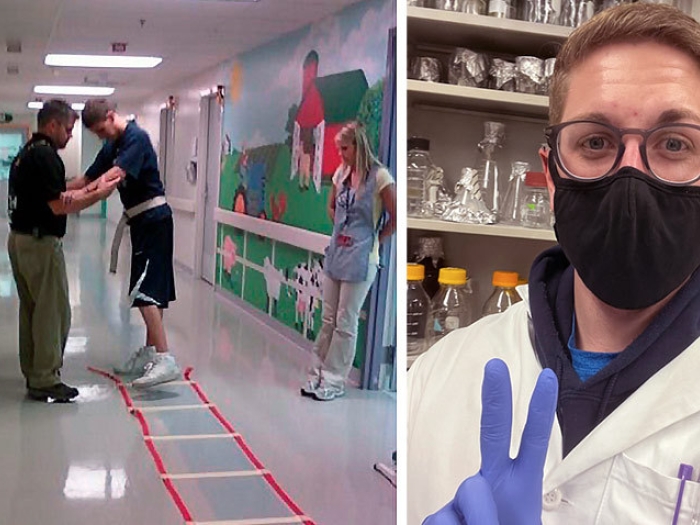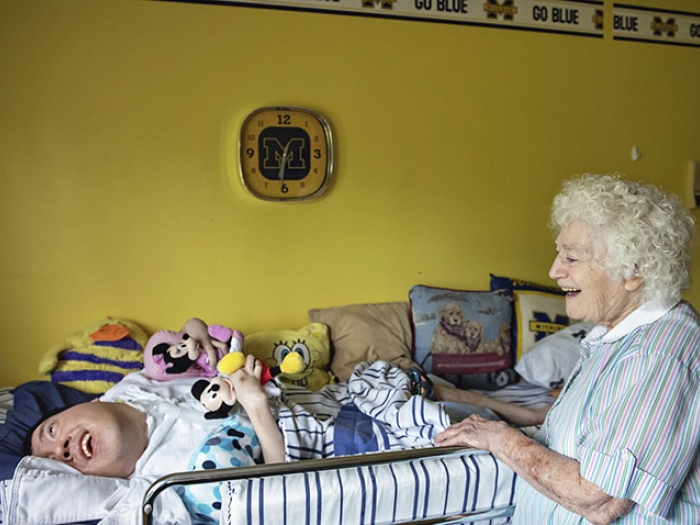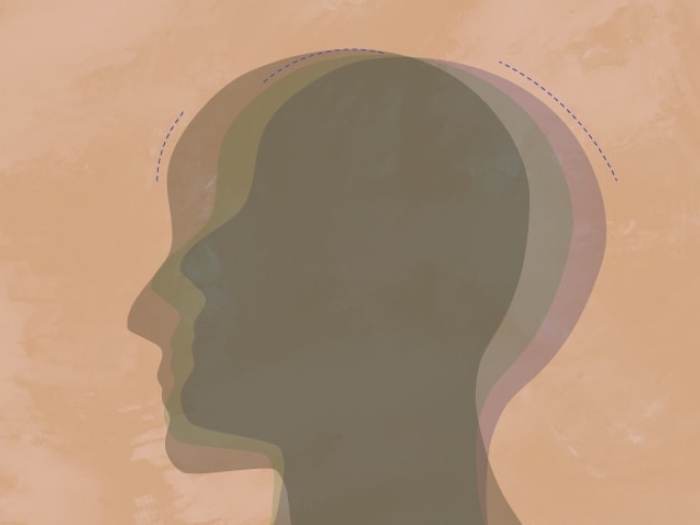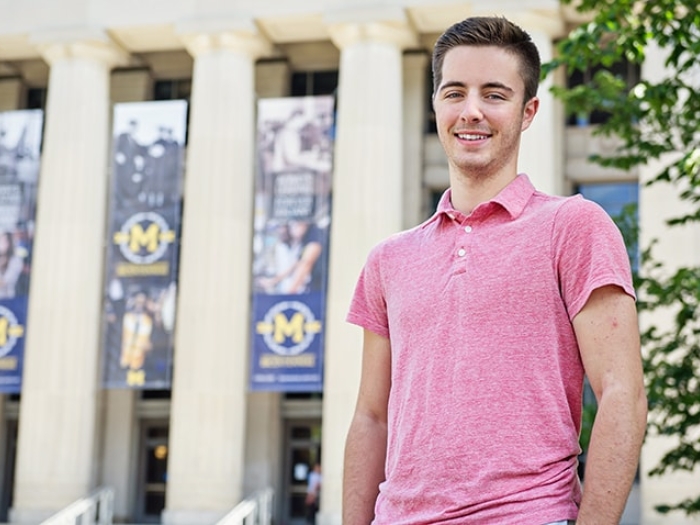A U-M alumna and Michigan Medicine researcher living with cerebral palsy speaks about her journey — and offers advice to others.
7:00 AM
Author |
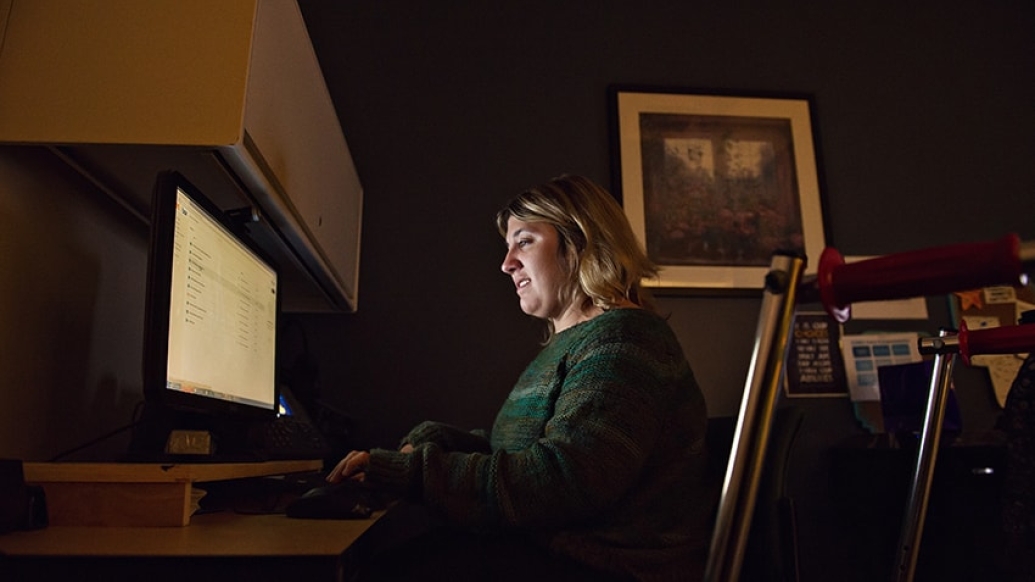
A generation ago, most infants and toddlers with cerebral palsy were not expected to reach adulthood. But thanks to modern treatment advances, more attention and focus within the medical community and greater acceptance in society, more people are living long, full lives.
MORE FROM MICHIGAN: Sign up for our weekly newsletter
Caused by injury or abnormal development in the immature brain, usually before birth, cerebral palsy can lead to cognitive and physical difficulties of varying degrees. It is the most commonly diagnosed disability in children.
Jodi Kreschmer knows the challenges firsthand. The 29-year-old was diagnosed with cerebral palsy at birth.
Still, she has long maintained a positive outlook: "My mom and dad raised me to know that disability is part of my life, not my whole life."
The native of Chesterfield Township, Michigan, earned an undergraduate degree from Michigan State University in 2010 and a master's degree in social work from the University of Michigan in 2013.
Today, Kreschmer is a research area specialist associate in Michigan Medicine's Department of Physical Medicine and Rehabilitation, where she helps teams investigate a range of issues affecting people with cerebral palsy and other physical disabilities.
She spoke recently about her own health care journey and offered advice for others:
What challenges do you face as an adult with cerebral palsy?
Kreschmer: When I was younger, I was more physically active than I am now. When I went to college and graduate school, both campuses were so big, I needed to use a scooter to get around. I am still able to walk, but recently my movement has deteriorated.
I don't want to be tied to my scooter — I want to do all I can to maintain my mobility. So I recently started physical therapy here at U-M, near my office.
Another aspect of my cerebral palsy is spasticity (muscle stiffness that makes it difficult to move). I take muscle relaxant medication, but one of the side effects is that when the spasticity is reduced, the strength in my legs decreases. This is another area I'm working on in physical therapy: building muscle strength.
SEE ALSO: Cerebral Palsy Patient's Hard Work Rewarded at the Happiest Place on Earth
Recently, I have started to experience some pain as well, mostly in my back. While it's not every day, it is a concern I'm closely monitoring with my care team.
My vision is fine, and I'm grateful for that. But I still struggle with a few cognitive issues related to cerebral palsy. Sometimes I still have trouble turning the thoughts I think into the words I say. And I have some spatial recognition issues; for example, I cannot tell left from right.
Could you talk about your experience finding health care providers who understand both cerebral palsy and general medicine?
Kreschmer: When I was born, the hospital gave my parents a list of doctors. On that list were a physiatrist and an ophthalmologist they began taking me to as an infant. I continued to be cared for by those doctors through childhood and to this day.
Why do I still see those same specialists? They know me and my cerebral palsy. And I know and trust them. We've built a relationship that still works for me today.
I also have a primary care physician in my community. I began seeing her as a teenager, and I continue to, as needed. She does a good job addressing the basic health issues any adult faces, but she doesn't always get how cerebral palsy affects different aspects of my life.
For example, moving from a stool onto an exam table in order to have my blood pressure checked is quite a challenge for me. At a recent clinic appointment, the movement required to get onto the table caused my blood pressure to rise. It had to be rechecked after I had been seated for a few minutes in order to get an accurate reading.
How has receiving care changed as you have grown older?
Kreschmer: When I was younger, my mom coordinated my care. Now, I'm in charge. It's up to me to coordinate appointments and share information from my physiatrist with my primary care physician. Sometimes I wish there was more coordination between them.
Although I choose to receive care close to my home rather than near my work, I think Michigan Medicine's Multidisciplinary Adult Cerebral Palsy Clinic is a terrific way to provide well-coordinated care for people like me.
What would you tell parents raising a child with cerebral palsy?
Kreschmer: I'd advise them to do what my parents did. I'm an only child, but I was never overprotected. I went to regular schools, took the same classes as other kids and went to sleepovers and birthday parties. That has made a huge difference in my confidence.
SEE ALSO: Adaptive Sports Clinics Help Kids with Disabilities Get Active
Always see your child as a person first, regardless of the degree of his or her disability. Kids need to be allowed to grow and be independent.
And, as much as possible, allow your kids to make their own decisions as they age. Support them and give them your wisdom, but let them discover what they can achieve.
What advice would you give to a young adult living with cerebral palsy?
Kreschmer: Even though it's difficult, and even at those times when you doubt it will make a difference, commit to regular exercise. You may think your level of ability will always stay the same; in my experience, it doesn't turn out like that. Be as physically active and as active in your community as you can.
At the same time, don't overstress yourself. Don't try and prove that you're just like everyone else — like young people always want to do! Instead, do what you can and pace yourself. If you're tired, take breaks.
Don't compare yourself to others. Be who you are. When you do that, you'll make an amazing impact on the world.
For more information or to schedule an appointment at the Michigan Multidisciplinary Adult Cerebral Palsy Clinic, call 734-936-7175.

Explore a variety of healthcare news & stories by visiting the Health Lab home page for more articles.

Department of Communication at Michigan Medicine
Want top health & research news weekly? Sign up for Health Lab’s newsletters today!

